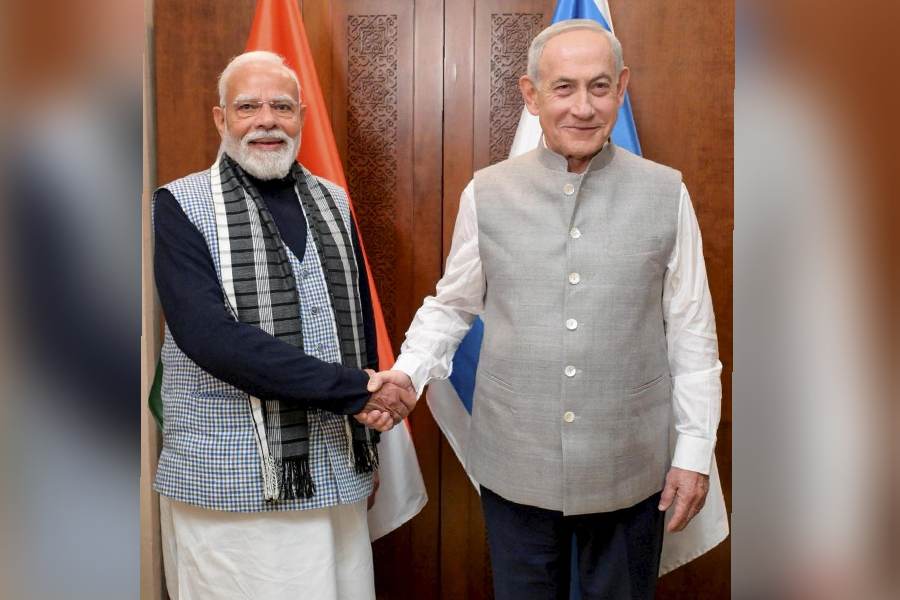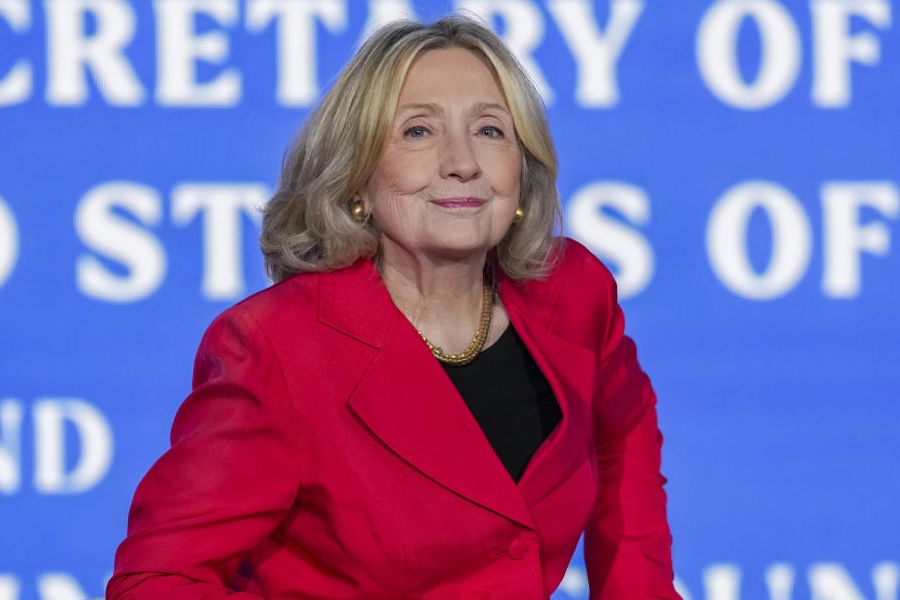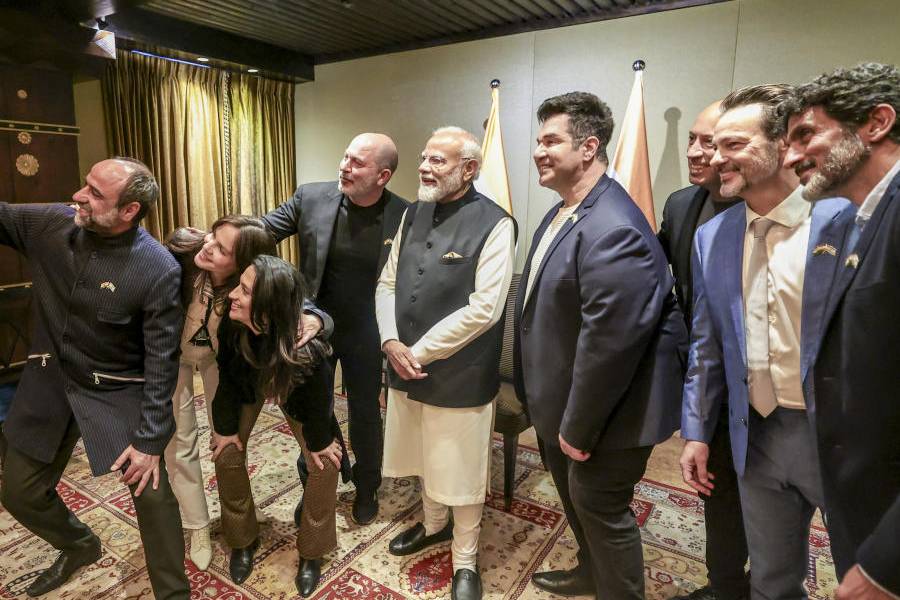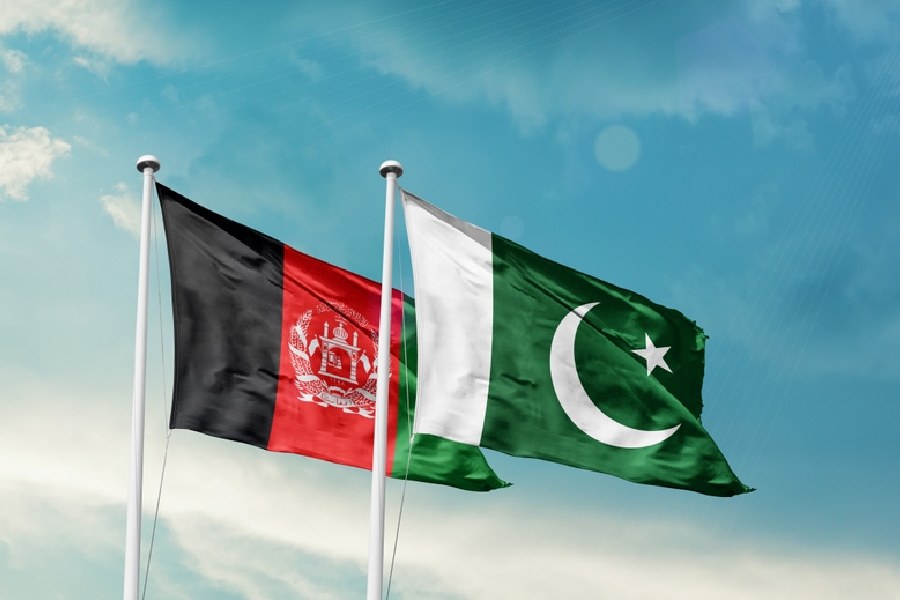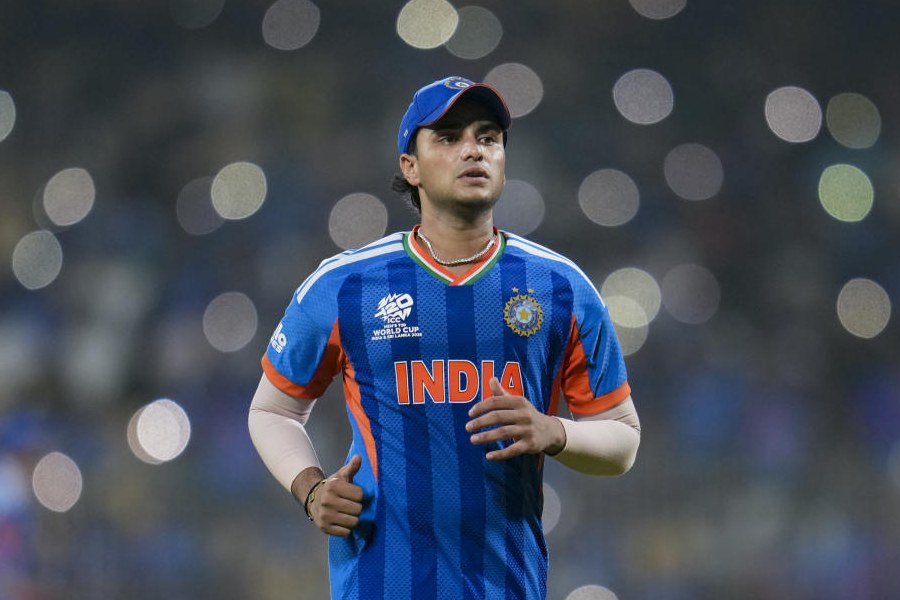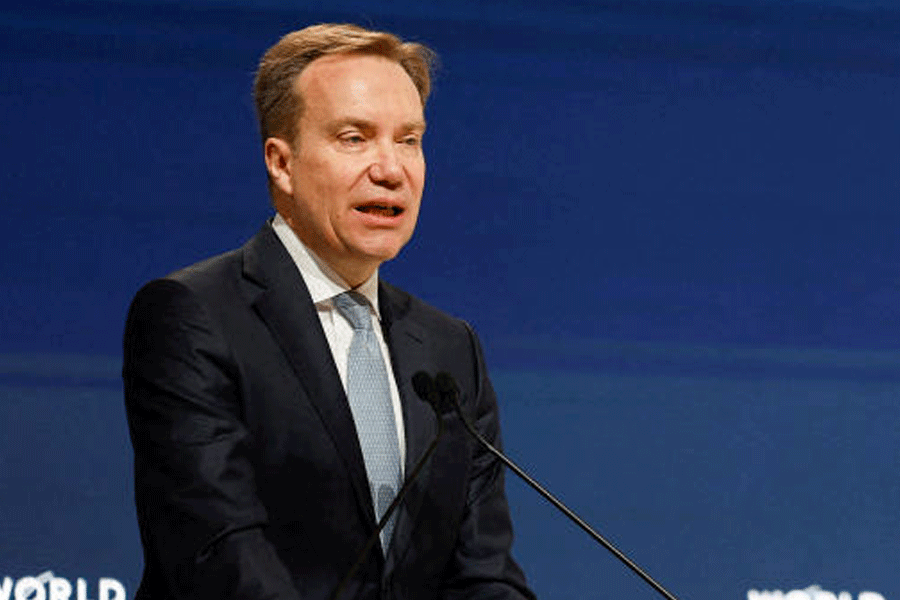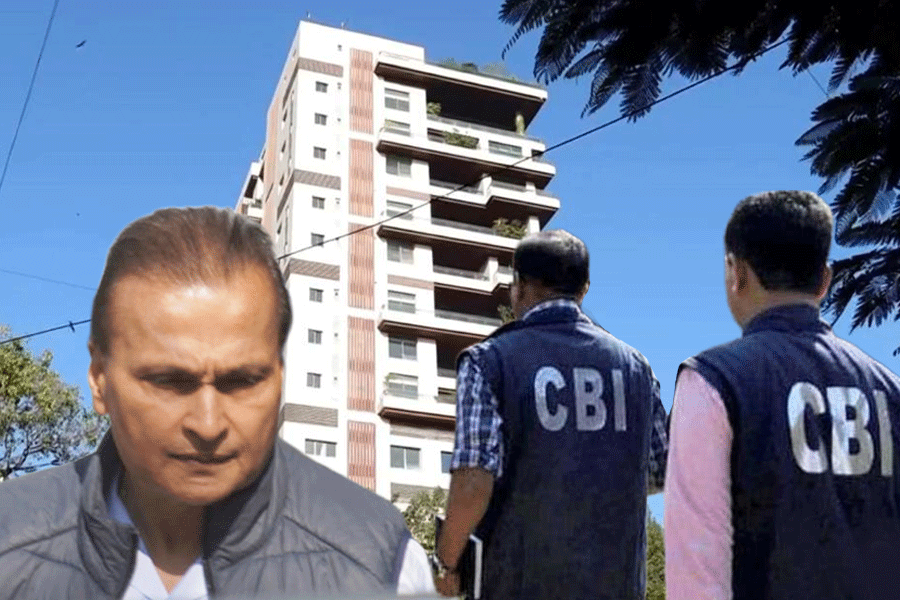The prime minister, Atal Bihari Vajpayee, and the Russian president, Vladi- mir Putin, have been cast in the role of “natural allies” in the aftermath of the terrorist siege of what is still known in Moscow by its proletarian-sounding name of the “House of Culture for the State Ball-Bearing Factory”. Although relations between New Delhi and Moscow are now at its most robust since the collapse of the Soviet Union, “natural allies” is a term which is seldom used to describe that friendship. On the other hand, that is how Indo-American relations are nowadays described.
What has made Putin’s plight this week similar to that of Vajpayee a few weeks ago, however, is not only their shared challenges in the face of terror. That, after all, is no longer the monopoly of any single leader: terrorism is now a threat faced by everyone from the American president, George W. Bush to Indonesia’s Megawati Sukar- noputri to Saudi Arabia’s King Fahd. The problem that both Vajpayee and Putin have to put up with is the Danish presidency of the European Union. In utter disregard of Russian sensibilities — indeed, the sensitivities of the civilized world — Denmark hosted the “World Chechen Congress” within days of the terrorist outrage at the Moscow theatre.
Three weeks ago, the Danish prime minister, Anders Fogh Rasmussen, had shown the same degree of insensitivity during Vajpayee’s visit to Copenhagen and blinked at terrorism in south Asia when he equated the victim, India, and the perpetrator of terror, Pakistan. The Danish action in both cases is a reminder to Vajpayee and Putin that double standards on terrorism must be factored into anything they do to protect their respective states and their citizens from terror, pious declarations against mindless violence notwithstanding.
For New Delhi, there is much more to be learned from the incidents in Moscow last week. One of the easiest things is to criticize an anti-terrorist operation, more so when innocent civilians are victims or are at risk. Vajpayee’s government has been forthright in its support for Moscow in this difficult crisis. The prime minister spoke to Putin shortly after the Chech- en hostage-takers were smoked out and then shot.
According to those in Moscow who are privy to their conversation, it was marked by an understanding which has characterized the support of the two leaders for each other under trying conditions for their countries. Yet, there will be a temptation in India — both within the government and without — to overlook Putin’s qualities of leadership and Russia’s undiminished strength to be a bulwark against terror because of the high casualties in Moscow, that too brought about by gas used by Russian forces which freed the hostages.
This is so because India is a soft state. Even the Bharatiya Janata Party, which came to power with slogans and an agenda to the contrary, has been unable to change that to any appreciable degree. Secondly, India has one of the worst records in the world for making compromises with the perpetrators of terrorism. From Mufti Mohammad Sayeed’s home-ministership in 1989, when his daughter Rubaiya was kidnapped, to the Indian Airlines hijacking to Kandahar exactly 10 years later, India has given in to terrorists like few other similarly placed countries have. Therefore, many Indians will find it easy to criticize Putin’s handling of last week’s crisis on many fronts.
But any such criticism masks the remarkable strengths of Russia as a country, which its latest crisis brought out: strengths which made the Soviet Union’s legendary defence against Hitler’s army one of the most glorious chapters in the history of mankind. Last week’s Moscow siege demonstrated that although it is no longer a superpower, the energy, the commitment and the convictions which propelled the Soviet Union into the big league are still very much a part of the Russian society and the Russian state.
Since this column is about diplomacy, it shall dwell primarily on how Putin’s government handled the diplomatic fallout of the Chechen hostage-taking. This has valuable lessons for South Block, whose record under similar circumstances has been, to say the least, lacklustre.
Very early on in the hostage crisis, Putin secured a “fatwa” from Russia’s Grand Council of Muftis denouncing the siege and virtually giving the law enforcement forces a blank cheque to rescue the captives in the theatre. It was crucial, given Russia’s multi-ethnic, multi-religious society and because its Islamic underbelly extends across the world’s Muslim crescent. It did not come as a surprise that some of the staunchest support for Russia throughout this crisis came from the now-independent former Soviet republics in central Asia.
In obtaining a fatwa, Putin had taken a leaf out of Saudi Arabia’s experience after Iranian pilgrims for the annual haj, heady from the success of the Islamic revolution in overthrowing Shah Reza Pahlavi, forcibly occupied holy places in the kingdom. The Saudi monarchy obtained religious sanction for raiding the holy sites before actually sending in their forces to liberate them.
When “Operation Blue Star” was being planned to evict Jarnail Singh Bhindranwale from Amritsar’s Golden Temple, it had been suggested to Indira Gandhi that she should do something similar. Maybe, if that had been done, the tragic assassination of the prime minister by her Sikh bodyguards would not have taken place. But then, that is the crucial difference between a country like Russia, which still lives by history, and one like India which chooses to overlook its own glorious past, leave alone learn from the history of others.
One of the most significant tributes to the rescue operation in Moscow came from the security establishment in Warsaw. The Poles, like other eastern and central Europeans who had hoped in the flush of the fall of communism to make little Americas of their countries, are still wary of the Russians. As a reaction, they have joined the North Atlantic Treaty Organization, with some of the alliance members even sending soldiers to Afghanistan. But the Moscow rescue was one of those rare occasions when their masks came tumbling down.
The Poles, like the Russians, never forget their history. And no Pole can forget that it was the Red Army which liberated Auschwitz. The Polish praise for the Moscow rescue during the weekend was reminiscent of the tributes paid to the Red Army more than half a century ago: it said that the raid on the Chechens in Moscow had set a new standard for fighting terrorism.
The Russian foreign ministry and Russian embassies across the world worked on what could literally be called a war-footing. Last Friday, The Washington Post ran an editorial, which dripped with double standards. It actually said that “unlike America’s war on terrorism”, Russia’s had a political solution. By Saturday morning, the Russian ambassador to the United States of America, Yuri Ushakov, had a three-column reply to the editorial in print. Among other things, it said that Bush “offered not only political, but also practical support in resolving the hostage situation”. He talked of the need for broader American sympathy. “As a Russian — as a human being — I am sorry that The Post cannot offer even that much”.
Indeed, Bush offered the kind of assistance which no American president in history has offered any Russian leader. The success of Putin’s diplomacy is that such help has come from a US president who has repudiated arms control treaties with Moscow which were painfully negotiated over years — treaties which had profound implications for the balance of power in Europe. Russian diplomatic activity on a war footing during the hostage crisis was not confined to the big capitals. Baku, Ankara, Almaty...places where Chechens had refuge of one kind or another were systematically targeted.
What the Russians saw as even minor infractions to their interests were targeted. A case in point involves Claude Blanchemaison, whom many Indians will remember as the French ambassador to New Delhi during the nuclear tests in 1998. He is now ambassador to Moscow and was summoned on Sunday to the foreign office. The Russians had found out that on the previous day, a group of Chechens had met at a theatre called de la Colline in Paris. The Russian deputy foreign minister, Alexander Meshkov, told the ambassador in a démarche that “any actions of this kind are in direct contradiction with the provisions of resolution 1373 of the UN Security Council, which stipulates denial of any support whatever to international terrorists”.
The consensus in Washington where there is still considerable sympathy at various levels for anything that weakens Russia is that Moscow’s response to last week’s crisis has dealt a severe blow to the Caucusian rebel cause. Many of those who criticize the hostage release are unaware that a day before the rescue, the Federal Security Service, successor to the KGB, assembled its counterparts from 30 countries in Moscow to discuss how to end the siege. The discussions with the US secret service was particularly intense and Britain flew in to Moscow a team of anti-terror experts.
All this does not obscure the sad truth that more than 100 hostages died, only two of them killed by terrorists. The reality is that in such situations, there is one truth for those who survive the ordeal and another truth for those who lose dear ones in the tragedy. It is something that the world will have to live with as terrorism spreads without boundaries.


